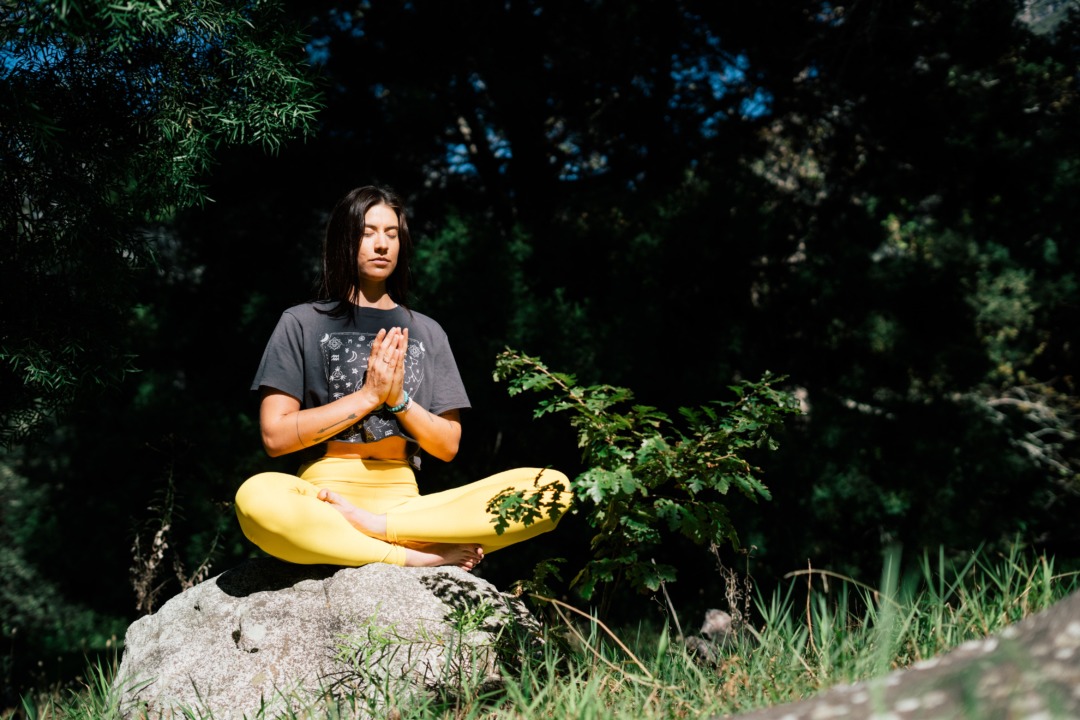How many times in a day do we really notice what we’re doing? Our daily routines can become so habitual that we go on ‘autopilot’ mode and start reacting from our unconscious pathways instead of being fully engaged. While subconscious repetition can be helpful at times, it can also keep us feeling stuck in our ways. This is especially relevant when it comes to our drinking habits.
If your drinking habits feel so deeply ingrained in your routine to the point where it feels impossible to change, you are not alone. It’s important to remember that drinking is something we do, but not who we are. Even what feels like “automatic” drinking habits can be changed. An incredibly powerful practice for overriding your subconscious instincts is actively turning mindless drinking into mindful drinking.
What is mindful drinking?
With the rise of the sober curious movement and the mindful drinking trend, you may have heard this term before. Mindful drinking is the ability to observe one’s relationship with alcohol objectively and with deliberate curiosity. It’s the process of actively being aware of the amount of alcohol you consume and your motivation for drinking. Some people use mindful drinking in order to moderate drinking, while others use mindful drinking as a stepping stone in their journey towards abstinence.
If you’re not sure what your long-term goal is yet, that’s okay. Mindful drinking is a great way to start reflecting on your relationship with alcohol, and clarifying how you want alcohol to show up or not show up in your life. Growing this awareness can both illuminate your path forward, and strengthen your trust in your ability to reach your goals.

Tips on how to drink mindfully
Examine the “what’s” and “how’s”
In any mindfulness practice, two very valuable components involve examining the “what’s” and “how’s” of the moment. For example, as you are reading this article,
- The “what’s” are made up of everything you are noticing in the process (i.e. feeling tired, absorbing as much information as you can, thinking about what you’re going to prepare for lunch).
- The “how’s” are the ways the “what’s” are manifesting in yourself or the environment around you (i.e. eyes are heavy, writing notes down, listening to what your body is craving).
The next time you are about to drink an alcoholic drink, consider the “what’s” and “how’s” to better assess what is going on for you at that moment and how it might be impacting your desire to drink. I would encourage you to try this check-in before every single alcoholic drink you are about to consume and take note of any changes in your thoughts as a result.
Oftentimes describing the “what’s” and “how’s” of the moment can lead to asking yourself; What might I want to be doing instead? How can I best care for myself right now? Is this next glass of beer or wine going to be something I enjoy? In essence, you can start to listen to your inner voice and genuine needs.
Create a mantra
Another trick is to create a mantra that can act as an “ah-ha” signal that you are ready to “tune in to” the present. A grounding mantra can help create a mindful moment, and allow you to make decisions that are aligned with your truest self. Phrases like “I am here” or “be where your feet are” can cue your brain to observe the situation, connect to your breath, and shift from that auto-pilot mode into powerful consciousness. I’ve also had patients reiterate these mantras with physical reminders around their home, including post-it notes and magnets.
Immerse in the entirety of your experience
Actively engaging your five senses is another helpful mindfulness practice. This can mean managing cravings by submerging your senses in alternative forms of sensory behavior (i.e. sipping on alcohol alternatives like alcohol free drinks, lighting a relaxing candle, or going on a walk). If you’re trying to drink in moderation, it can also mean closely and intentionally observing the drinking experience itself with your five senses.
Why intentional observation works to help reduce alcohol consumption is similar to the studies done with people trying to reduce smoking. The participants were asked to spend a few minutes holding the cigarette before using it. The more time they spent examining it, touching it, smelling it, soaking in what it looked like and how their body reacted to just observing it, the less likely they were to light it, and if they did light it, they stopped at that one or had significantly less than they would.

Keep a journal
All of the above mindful drinking tools can be further solidified through journaling. A journaling practice may include:
- Writing down your daily mantra before saying it aloud
- Noting the ‘whats and hows’ of your situation
- Recording your observations
In addition to these mindfulness practices, it can also be helpful to record your alcohol consumption. If you’re looking to reduce your consumption and become a more mindful drinker, recording drinks per day can help you reflect on your patterns, identify triggers, and track progress over time. Keeping a journal or log is also a best practice in specialized online alcohol therapy, where you’re encouraged to share these insights with your Care Team to align on goals and next steps.
Incorporating mindful drinking into your own journey
We all have different reasons for cultivating mindfulness. For some, moving from mindless drinking to mindful drinking is about setting an ideal amount to consume and noting all the emotions, thoughts, and sensations that arise when trying to complete that plan. For others, mindfulness is used as a tool for recognizing triggers and managing cravings by becoming grounded in their “why” for abstaining.
Like any coping skill, it’s best to put it into action during moments of relative ‘normalcy’. Practicing ‘while the kettle is cold’ allows for the muscle memory to develop so that mindfulness can be a go-to tool during challenging moments. That’s why it’s a great idea to incorporate mindfulness into your routine. You can even make it a game. Try to catch yourself disengaging and take a deep breath, or see if you can notice a certain object or color throughout your day. These are just some small ways to exercise your mindfulness “muscles” and break out of “autopilot” mode. Over time, the mindful drinking trend may become a part of your daily routine.
If you’re looking for a place to start, try following this guided mindful drinking meditation I recorded.
Rewarding benefits of mindful drinking
Mindful drinking not only allows you to better understand your relationship with alcohol, but also serves as a holistic self-care practice, creating neural pathways that benefit your overall mood and wellbeing.
Mindfulness has been studied extensively for its benefits. Key benefits include:
- Reduced stress
- Improved self-esteem
- Lowered blood pressure
- Improved circulation
- Boosted immune system
Of course everyone’s journey is different, but the more you explore mindfulness in a way that feels right for you, the more it can be something you genuinely can look forward to doing.
[resource_pullquote_style_1 content=”This was my first Meditation/Mindfulness Monday, and I loved it. Felt restored and calm after the first practice. I am going to try to attend regularly… Very impressed and hopeful. – Monument Member”]
Changing your relationship with alcohol with Monument
If mindful drinking sounds like a major jump to make alone, that’s completely understandable. There are experts ready and eager to guide you throughout your journey. Engaging in online alcohol treatment can be incredibly helpful for making progress towards your goals. In online alcohol therapy, you can work together with a specialized therapist to identify exactly what mindful drinking might look like for you on your unique journey.
Monument also offers personalized physician care and medication to stop drinking, free therapist-moderated support groups, and a 24/7 anonymous community chat. Exploring your options and discussing your experience with others can provide tremendous empowerment as you start becoming more aware of your current relationship with alcohol and the changes you’d like to make.

While it can be challenging to begin a mindful drinking practice, your work will be worth it. Not only does mindfulness allow you to examine the context for your drinking in a present-minded state, but it can also serve as the starting point of an invaluable tool for your overall self-care. If you’re not sure where to start, consider attending one of my mindfulness support group sessions. Join with your camera on or off. You are always welcome.
